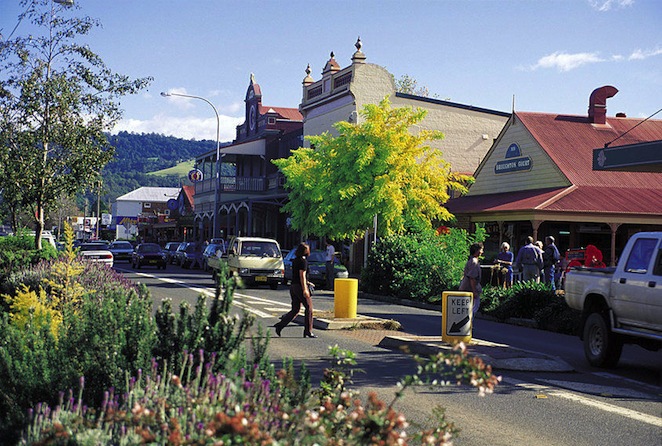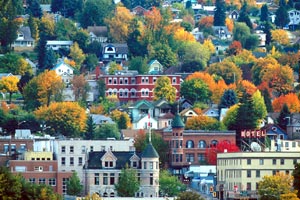Switzerland
Find Eduxpress Programmes
If you are a student who loves chocolate, high-end things, and gorgeous landscapes, Switzerland was tailor-made for you.
A great plus is the kind population, the great shops and economy, and the international atmosphere, where students and people from all over the world come in search of great education and living conditions.
We cannot stress enough how great your decision of studying in Switzerland is, but we can elaborate on some details and break some of the stereotypes of yodelling and shady banks where mobsters keep their money.
Given the fact that Switzerland has one of the most advanced free market economies, it's quite surprising that tuition fees are relatively affordable. Both EU/EEA and non-EU/EEA students usually pay between 400 and 3,700 EUR per academic year.
Not spending a lot on your education is a great advantage because living costs in Switzerland are well above the European average.
Institutions like Times Higher Education, TopUniversities, and US News release their global university rankings every year. And every year Swiss universities earn their places among the best educational institutions out there.
Swiss universities stand out by providing some of the best study programmes in Business, Tourism and Hospitality, Culinary Arts, and Engineering.
If you dream of becoming a polyglot one day and knowing a little bit about as many cultures as possible, Switzerland can help you fulfil this dream.
There are 4 official languages — German, French, Italian, and Romansh — and the Swiss society and people are very welcoming towards internationals from all over the world.
High livings standards go hand in hand with high salaries — and this is so true in Switzerland. The country has a healthy economy, a stable society, and one of the best healthcare systems out there. Unemployment rates are also very low.
All in all, Switzerland is a great place to settle, especially after your graduation. You'll already be familiar with the language(s), lifestyle, and locals, which will make it so much easier to find your place and build a life you're proud of.
Living in Switzerland isn't only about hard study, work, and a lot of money. It's also about travel, nature, and enjoying yourself. And there are certainly enough places where you can do that.
These are only a few of the popular destinations that attract tourists from all over the world, although, we must confess, the iconic mountains and peaks have already won our hearts: the Matterhorn, Interlaken, Lucerne, Lake Geneva, Chillon Castle, Lake Lugano and Ticino, the Rhine Falls, the Swiss National Park, etc.
Switzerland is famous for the neutral, yet special position it holds in the EU. Seeing as they produce the best bankers and the best lawyers, it comes as no surprise that the best and most sought-after degrees in Switzerland are in fields such as:
Switzerland doesn’t have a de jure capital, meaning that no city is recognised as the capital. However, the de facto city recognised as the governmental seat is Bern.
And, because Switzerland won’t make things easier for us, the largest city in the country is Zurich.
There’s not just only one good location. You can take your pick from the list below:
Switzerland has some amazing universities, with its education system being ranked very high, and international students flocking to its programmes like it’s the promised land.
In case you don’t know where to start, you could always check out these universities we recommend wholeheartedly:
Switzerland, unlike other countries, doesn’t have a special website or application centre that can manage your documents and apply on your behalf.
As it stands, you simply have to check the website of the programme you chose and:
Because each degree and university has its own requirements, you have to pay attention and check the list of documents carefully.
Usually, the documents required are:
You can also make sure you’re accepted to a university if you:
Let's take a closer look at tuition and living expenses in Switzerland:
In Switzerland, both EU/EEA and non-EU/EEA students pay the same tuition fees at most public universities (with a few exceptions listed further below). For Bachelor's and Master's degrees, students pay between 400–3,700 EUR per year.
Private universities are much more expensive. Their tuition can go over 40,000 EUR per academic year. But not all study programmes cost that much; it depends on the discipline and the university.
Students who come to Switzerland on an exchange programme don’t pay any tuition fee. At universities from Fribourg, Lucerne, Neuchatel, St. Gallen, Zurich, and Lugano, you can encounter 2 different situations:
Switzerland is one of the most expensive countries in Europe, but every penny is worth it, thanks to the high standard of living and the high average salaries. To live there as a student you need to budget around 1,300–1,700 EUR per month.
Here's a breakdown of the average living costs in Switzerland:
Switzerland, also known as Confoederatio Helvetica (CH) in Latin, is famous for its neutral position throughout history. In the immortal words of Frank Liebkind, from “The Producers”: “I had nothing to do with the war! I didn't even know there was a war on! We lived at the back, near Switzerland. All we heard was yodelling.” The history behind that joke is the almost 500 years of independence of the Swiss; aside from Napoleon’s occupation, at the beginning of the 19th century, Switzerland was independent since 1499.
That’s one of the reasons why the Vatican is protected by the Swiss Guards, these men being the only ones allowed to serve foreign armies. That can be a very good thing, too, seeing how the Swiss are rather bad at the whole “military” thing: let’s not forget that, in 2007, Switzerland accidentally invaded Lichtenstein. Makes the time you forgot the milk on the stove feel rather small, when put into perspective.
Now, getting back to praising Switzerland.
Everybody can tell you that it’s really famous for its chocolate, cheese, banking system, watches, alpine areas, and, let’s not forget, that the flag is, also, a huge plus. Heh!
Also, Switzerland is the quintessence of a perfect destination for students. For instance:
Before we go, you should also know that Switzerland has a law that makes owning only one guinea pig illegal, so they wouldn’t get lonely. If this fact doesn’t make you happy, nothing will.



